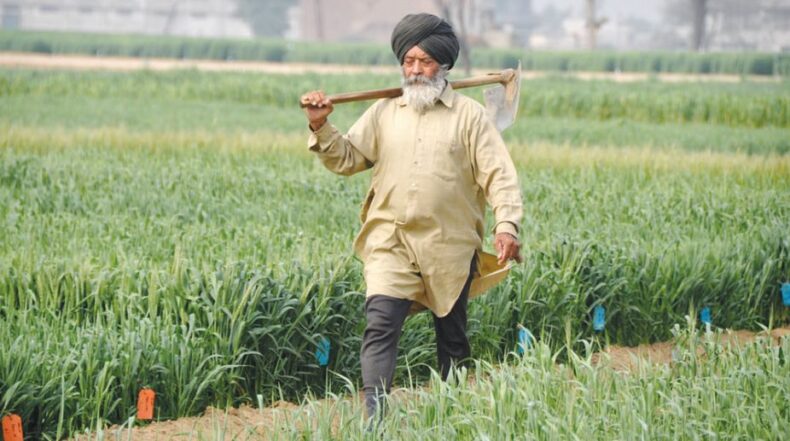“People want a good change, they want to transform the system, but the alternative they want will not achieve this.” That’s how Joginder Singh Ugrahan, the leader of Punjab largest union, sums up the political environment in the state, fresh off one of the country’s longest agrarian agitations.
“You’ve got a skeptic on your hands now.” he claims that these elections are unique not only because of many parties competing but also because of the agitation’s “consciousness.” Before, people had no idea what corporations, the World Trade Organization, or the World Bank were. They now understand, which is why they seek a good change.”
Ugrahan offers the questions that people should ask the parties while relaxing in a courtyard with a patch of organic vegetables and a gathering of office-bearers. “How are you going to provide employment for us?” “How will you bridge the gap between the affluent and the poor that is widening?”
“Of what significance is my degree if I don’t obtain the job,” Manpreet Singh, who holds an MSc in geography from Khalsa College in Patiala, says at the bus stop a few meters from his residence. Manpreet aspires to be a teacher, a profession currently facing a shortage in the state.
Far out in Rajpura, a tiny tire puncture business owner named Paramjit Singh is concerned about rising inequality and joblessness. “The epidemic has resulted in the loss of so many employees.” “The impoverished are fighting to make ends meet.”
Hardeep Singh, a farmer from Dhaipi village in Bhawanigarh, Punjab says he owns two acres of land and does not want to contract the farm due to the high rental costs. “The market pricing for an acre in Malwa is as high as Rs 70,000.” I don’t have much time to save, so I’ve ceased taking on new leases.”
Ugrahan solution for the rural dilemma.
No political party, according to Ugrahan, has come up with a solution to the rural dilemma. “Mouthing the phrase Punjab model or saying Punjab is in khatra or Punjab Bachao is insufficient.
Agriculture requires structural transformation, but we will continue to suffer as long as we pander to the WTO, which wants us to eliminate subsidies and foodgrains.”
He believes that the agriculture rules, in line with WTO policies, would have killed the state’s farmers. “There would have been no farmers in Punjab in 15 years.” They enacted similar legislation in Bihar, and today, despite having more land at home, they come to work in the fields of farmers here.”
His office-bearers think the budget is a letdown. “Last year, the government set aside Rs 700 crore for people who do not burn their stubble; this year, it has set aside nothing.” Even the MGNREGA budget has been reduced.”
According to Ugrahan, all political parties thought the Kisan would unify behind them and help them win the election. “Those hopes, however, have now been crushed.” Farmers aren’t always in agreement. Agriculture is a massive industry with many distinct beliefs.”
“That’s not our job,” says Ugrahan of his union’s involvement in political politics. We’ve come together as a pressure group to effect positive change.”
He agrees that people are turning away from conventional parties, searching for constructive change. “They want to express their rage by defecting to a newer party since they haven’t seen their work yet.”
However, it operates within the same parameters. In Delhi, they, too, have gone through the privatization process. The systemic problems persist.”
His solution for conventional parties is to introduce new policies that are pro-people, pro-worker, and pro-farmer. “Farmers have a debt of Rs 1 lakh crore, while laborers have a debt of Rs 6,000 crore.”
They should work to have this debt forgiven so that farmers may start over. Then they should increase the quality of government schools and hospitals and their services. “Old behaviors like making big promises aren’t going to work anymore.”
“It’s a vicious spiral of goodness,” says the narrator. He claims that, just as an economic crisis leads to a social catastrophe, increasing employment creation will strengthen the economy.
People will spend more if they have jobs, and merchants will prosper. They’ll create more in factories, which will require farmland as a source of raw materials.”
When you ask him why unions can’t create up patches of model farming with their power to mobilize people, he shrugs. “It will necessitate a great deal of sacrifice.” Many little luxuries have become commonplace.
Even though dried twigs and cow dung patties are plentiful in most areas, no one wants to use them since LPG has grown prohibitively costly. People will accept organic food if the government commits to advertise it.”
Published by- Aashay Bhujbal
Edited by- Kritika Kashyap













